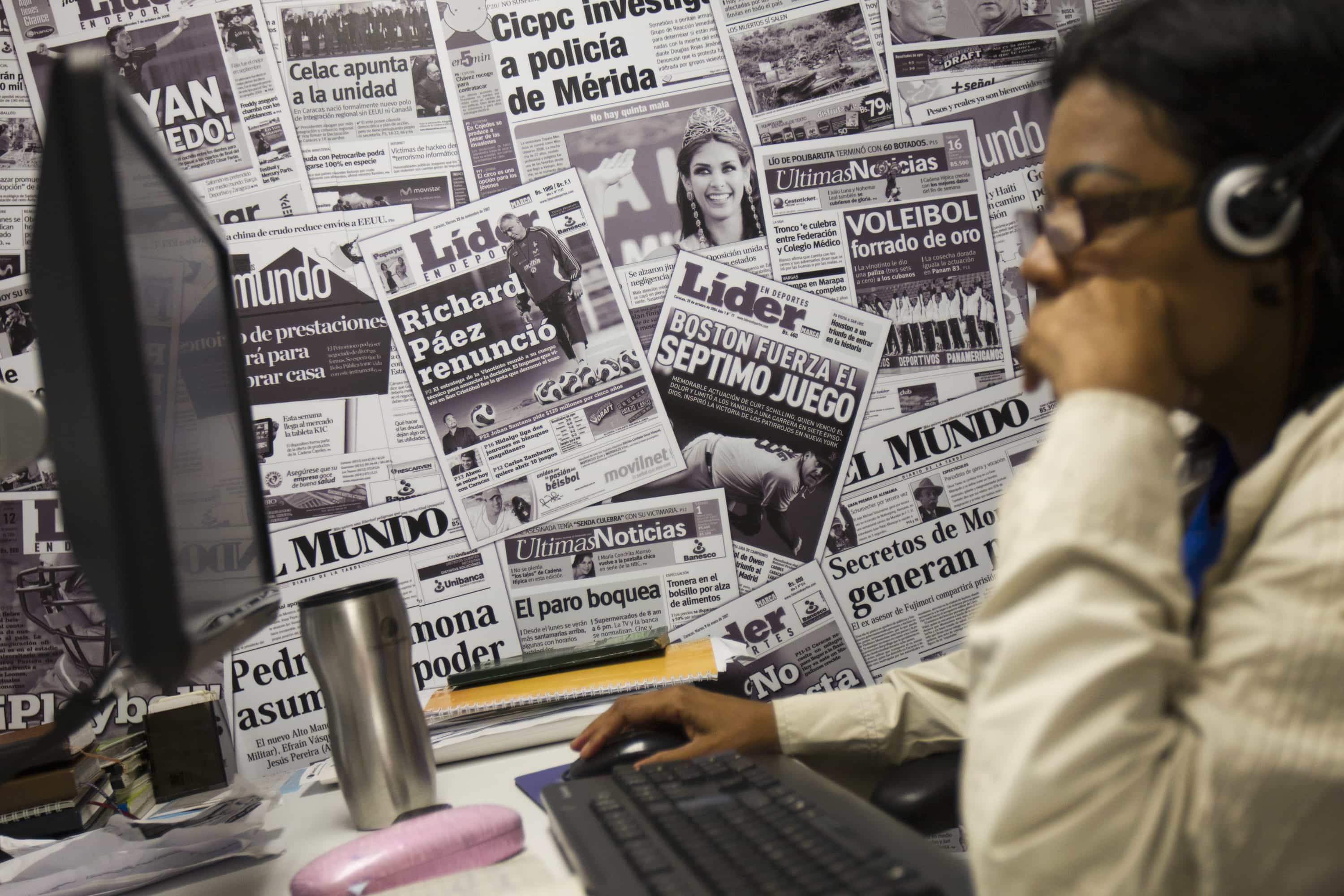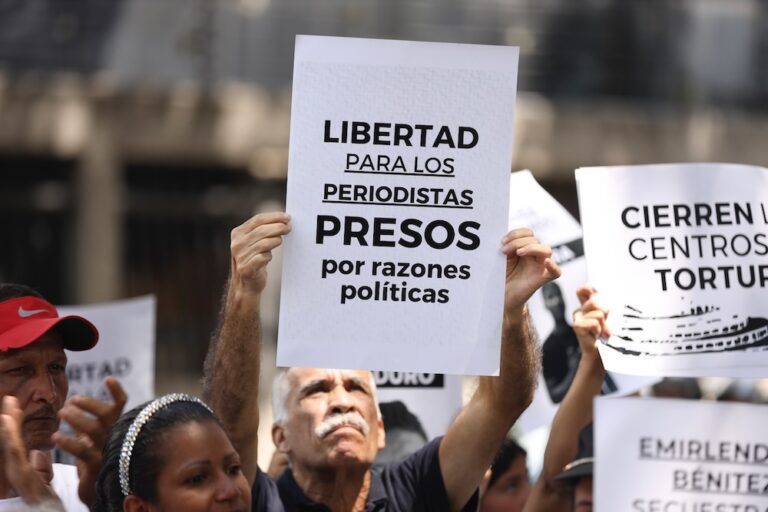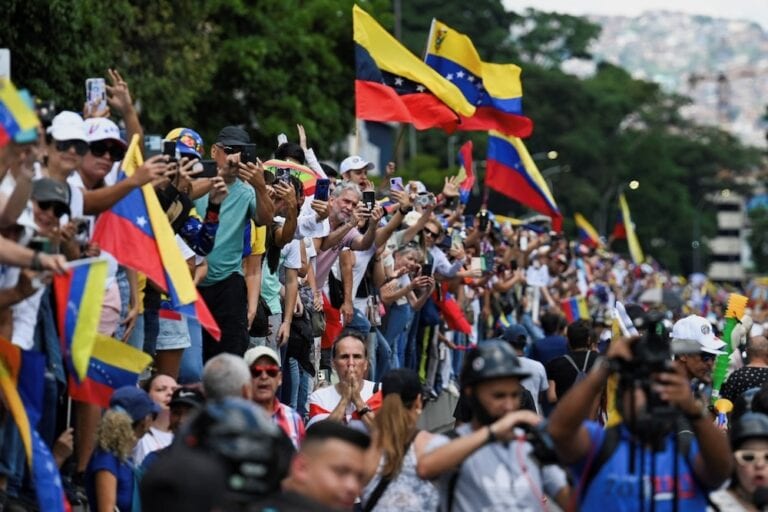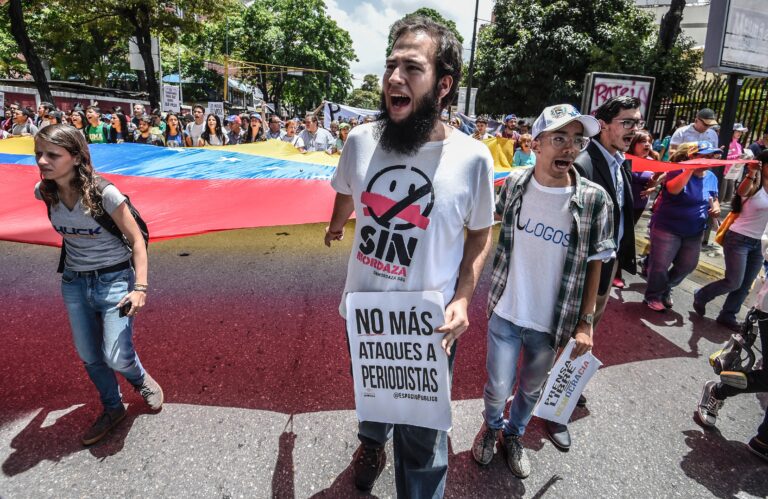The recent suspensions and departures of so many writers at El Universal is definitely alarming, as it will likely diminish the spectrum of opinions in Venezuela, a country where the open spaces of opinions are becoming less and less common.
By: Vanessa I. Garnica
The ink is still fresh on Elides Rojas July 5 column in which he promised that the editorial line at El Universal, one of Venezuela’s oldest publications, would not change as a result of the sale of the newspaper last July.
El Universal became the third leading private media company to be sold in Venezuela since March 2013. Globovisión and Cadena Capriles, the other two private media companies sold last year, were known for publishing information critical of the government.
Over the last few months, several journalists have left Grupo Últimas Noticias, formerly known as Cadena Capriles, citing self-censorship concerns. Local reports indicate that Globovisión has also changed its former editorial line and has stopped airing press conferences involving members of the opposition.
The International Press Institute (IPI) was able to verify that at least 18 writers were suspended temporarily from El Universal and another 11 were either dismissed or made the decision to leave after receiving a notification that their columns would be “temporarily suspended” from the newspaper’s opinion pages due to an “editorial restructuring”.
The recent suspensions and departures of so many writers at El Universal is definitely alarming, as it will likely diminish the spectrum of opinions in Venezuela, a country where the open spaces of opinions are becoming less and less common.
In an interview with IPI this week, Rojas, who continues to be El Universal‘s managing editor, said that, indeed, EL Universal‘s president had ordered a complete revision of the opinion section and, in the process, a number of opinion writers were informed of a temporary suspension.
“Naturally,” he explained, “some of these writers have become upset and have opted to stop writing altogether while denouncing it as censorship.”
On Tuesday, Rojas granted an interview to CNN en Español in which the editor admitted that the directors of the publication had decided to slightly adjust its editorial line during the first few days of the new administration.
“It has been a problematic month for us, especially with the opinion section, due to the new direction of the daily,” Rojas explained. “It has been discussed that this new direction should move the opinion pages a bit to the centre.”
On Sunday, El Universal declined to publish cartoonist Rayma Suprani‘s drawing depicting a meeting last week between Venezuelan President Nicolas Maduro and Colombian President Juan Manuel Santos.
“They published one of my archived drawings and sent an email asking me if the cartoon “[set to be published this week] could be altered or changed,” Suprani said during a press conference in Caracas on Aug. 4.
Suprani, who this week made the rounds on various television news shows in Venezuela and abroad, said on Monday that the established parameters concerning the latest set of changes are not very clear to the staff of the publication.
“I am still at El Universal and hope to continue to be here,” she said. “[Regardless], I will go public each time my cartoons are not published.”
Suprani further explained that not knowing who the owners of the newspaper are “generates a lot of distrust” among El Universal’s staff members.
During his Tuesday’s interview with CNN en Español, Rojas admitted to also being unaware of the names of the new owners. However, he mentioned that he has direct communications with the new president of the newspaper, Jesús Abreu Anselmi, who Rojas said “represents the people who invested the capital during the sale of the newspaper”.
The National Association of Press Workers of Venezuela (SNTP) this week published a list citing each of the writers either suspended or dismissed as a result of the “new direction” of El Universal. The list includes links to the writers’ accounts on Twitter, as well as their personal websites detailing their suspension or dismissal from the publication.



